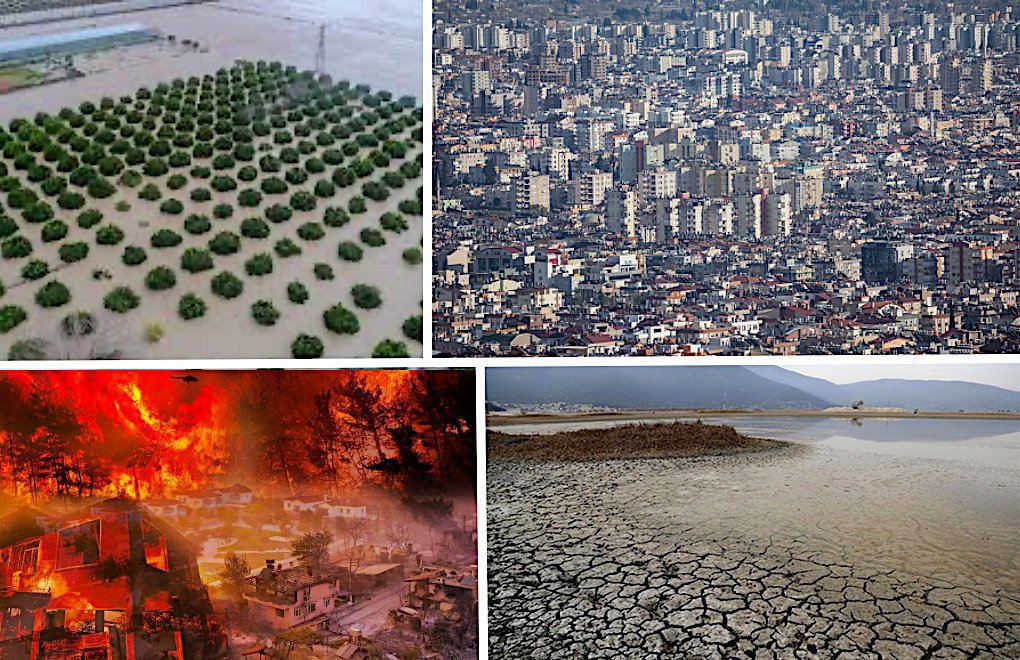Click to read the article in Turkish
The Antalya City Monitoring Platform has released a report regarding the violations of the right to the city in Antalya in 2021. The report has found that the violations were still in place and even got deeper last year.
The findings of the report have been shared with the public by platform's spokesperson lawyer Mustafa Şahin.
The report has shown that "public authorities' decisions and practices do not address the basic needs and problems of society and only lead to the maintenance of the status quo." The platform's report has found that "the inequalities, injustice and violations of rights" were aggravated in 2021 when the use of the city's sources of wealth is considered.
The report has listed the following findings:
- Due to natural events caused by climate crisis, living and nonliving beings, material and immaterial values were harmed: Forest fires broke out in Manavgat and razed other districts; streams, rivers, ponds and water sources such as Avlan, Kartal, İkiz Göller, Çayboğazı, Uçarsu and Kırkgöz dried out; as a result of floods, storms and excessive precipitation, public areas, Boğaçayı, Konyaaltı coast and other coasts, parks, gardens, urban landscapes and furniture, residential areas and greenhouses were damaged.
- The social restrictions and measures that should have been taken in the face of the novel coronavirus (COVID-19) outbreak were minimized on economic grounds.
- The negative effects of high costs of living, unemployment and precarity prevailed in every sector.
- Interventions were made in public areas and green spaces; environmental pollution and use of chemicals had a negative effect on soil, water and air qualities and led to detrimental effects.
- The central administration made arrangements and interventions that restricted the authorities of the local governments.
- Public areas and public sources of wealth were transferred to capitalists through forest and coastal arrangements as well as activities in and of ancient cities, ports, mines and hydroelectric power plants made by the central and local governments against planning principles, ecological structures and public interests.
- There was sexist aggressiveness at the level of atrocity, feminicides and intolerance to differences of opinion and lifestyles.
- There were ongoing price increases that were introduced based on the market rather than public interests or average income levels when it comes to the use of public services such as transportation, housing, education and healthcare and basic necessities.
- The say of urban dwellers and civilian dynamics in local governments and their participation in city administration were for show only.
- There were policies that encouraged people to see cultural assets, natural beauties and ecological structure not as our public values to be protected but as tools for profit.
Concluding its report, the platform has called on the urban residents to get involved in urban life, to follow up the shared interests, to make requests and to express their criticism in the face of the major problems that arise in central and local governments' arrangements and practices in living spaces."
The platform has also urged citizens to "side with the struggle for an urban life which is based on public interests, does not abuse public powers, does not consider public sources to be tools for making interest groups rich and is participatory, democratic and egalitarian." (AEK/SD)





